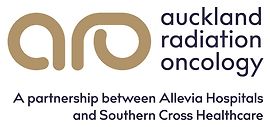Central Auckland, North Auckland > Private Hospitals & Specialists >
Auckland Radiation Oncology (ARO)
Private Service, Radiation Oncology, Oncology
Today
7:00 AM to 4:00 PM.
Description
ARO has a world class reputation for distinction in radiation therapy cancer treatment. Established in 2008, ARO is New Zealand's first private radiation oncology facility. Our purpose built private radiation therapy centre delivers treatment in a modern, comfortable and discreet setting.
Patients are offered a choice of timely, best possible radiation therapies (some may not be available elsewhere) aimed at improving cancer treatment outcomes.
The team of highly skilled and experienced radiation oncologists, radiation therapists, physicists and nurses are committed to the highest standards of clinical skills and personal care.
ARO's team works closely with each patient to develop and deliver a personal treatment plan. Free parking is offered onsite.
ARO offers the convenience of radiation therapy, pre and post treatment care, laboratory and radiology providers, a pharmacy and support from Mercy Hospital, all in one central location.
The Team
Staff
Each ARO staff member is carefully selected for their skills, experience and commitment to patient care and treatment outcomes. Together they work closely with the radiation oncologists to deliver world class treatment and care to suit each individual patient. Learn more.
Radiation oncologists working with ARO
Consultants
-

Dr David Anderson
Radiation Oncologist
-

Dr Ruth Angell
Radiation Oncologist
-

Dr Ramesh Arunachalam
Radiation Oncologist
-

Dr Susan Brooks
Radiation Oncologist
-

Dr John Childs
Radiation Oncologist
-

Dr Anthony Falkov
Radiation Oncologist
-

Dr Roger Huang
Radiation Oncologist
-

Dr Louis Lao
Radiation Oncologist
-

Dr Komeela Naidoo
Radiation Oncologist
-

Dr Ramesh Pandey
Radiation Oncologist
-

Dr Maria Pearse
Radiation Oncologist
-

Dr Giuseppe Sasso
Radiation Oncologist
-

Dr Matthew Seel
Radiation Oncologist
-

Dr Ziad Thotathil
Clinical Oncologist
Referral Expectations
By referring a patient to Auckland Radiation Oncology your patient will receive the best personalised treatment and care.
ARO consultants regularly participate in Multidisciplinary Meetings (MDMs). This means the radiation oncologists (R.O's) work closely with other specialists such as surgeons and medical oncologists to review specific cases and discuss treatment options so each patient’s care is personalised and aligned.
Patients are usually seen by an ARO consultant within a week of referral. Depending on consultant availability there are no waiting times for a simulation CT scan or treatment commencement once a treatment plan has been decided.
Patients: Video and learn about the patient treatment journey
Medical Professionals: Referral information.
Fees and Charges Description
An indication of cost of treatment will be provided once the oncologist has developed a specific care plan for the patient.
There are three choices of payment:
- Direct payment to ARO
- Payment direct from an overseas agency
- Private health insurance. If treatment is covered by your health insurance plan, before your treatment planning appointment, prior approval must be obtained from your health insurance organisation. The team at ARO are happy to assist you with this; please contact them on (09) 623 6046 or email them at
You are welcome to contact ARO if you have any questions about treatment costs, insurance claims and payments.
Hours
7:00 AM to 4:00 PM.
| Mon – Fri | 7:00 AM – 4:00 PM |
|---|
Procedures / Treatments
Radiation therapy uses special equipment to deliver high doses of radiation (beam of x-rays) to kill or damage cancerous tumours so they cannot grow or spread. Radiation therapy affects only the tumour and the surrounding area. Normal cells may be affected by radiation, but most appear to fully recover from the effects of the treatment. Some cancers are very sensitive to radiation but not all. Radiotherapy is usually given in small doses over a period of time; this is known as a course. A doctor who manages your radiotherapy is called a radiation oncologist. To learn more about the treatment and techniques provided at ARO click here. Possible side effects: The peak of any side effects experienced may occur around 7 to 14 days after the completion of radiation therapy. This is due to the cumulative nature of the treatment. Most side effects only last a few weeks but some of the effects, such as tiredness, may last for a couple of months after the end of your treatment. However, patients should gradually start to feel like normal again. For two weeks after completing treatment we advise patients continue with any special skin care instructions. We also advise patients to avoid direct sunlight on the treated area, and to avoid baths and using hot pools until any skin reaction has completely healed. The skin in the treatment area will always be more sensitive to the sun so patients should apply sun-block to any exposed, previously treated skin when going outside. Should patients have experienced a skin reaction they should not apply sunscreen to the treated skin until it has completely healed. A few patients experience some long term side effects. These can develop gradually over several months or years and will be monitored by the specialist team. Radiation therapists are highly trained and skilled health professionals who work in conjunction with the radiation oncologist to coordinate, design and implement your treatment programme. Radiation therapists work in coordinated teams and will be involved in all aspects of your care.
Radiation therapy uses special equipment to deliver high doses of radiation (beam of x-rays) to kill or damage cancerous tumours so they cannot grow or spread. Radiation therapy affects only the tumour and the surrounding area. Normal cells may be affected by radiation, but most appear to fully recover from the effects of the treatment. Some cancers are very sensitive to radiation but not all. Radiotherapy is usually given in small doses over a period of time; this is known as a course. A doctor who manages your radiotherapy is called a radiation oncologist. To learn more about the treatment and techniques provided at ARO click here. Possible side effects: The peak of any side effects experienced may occur around 7 to 14 days after the completion of radiation therapy. This is due to the cumulative nature of the treatment. Most side effects only last a few weeks but some of the effects, such as tiredness, may last for a couple of months after the end of your treatment. However, patients should gradually start to feel like normal again. For two weeks after completing treatment we advise patients continue with any special skin care instructions. We also advise patients to avoid direct sunlight on the treated area, and to avoid baths and using hot pools until any skin reaction has completely healed. The skin in the treatment area will always be more sensitive to the sun so patients should apply sun-block to any exposed, previously treated skin when going outside. Should patients have experienced a skin reaction they should not apply sunscreen to the treated skin until it has completely healed. A few patients experience some long term side effects. These can develop gradually over several months or years and will be monitored by the specialist team. Radiation therapists are highly trained and skilled health professionals who work in conjunction with the radiation oncologist to coordinate, design and implement your treatment programme. Radiation therapists work in coordinated teams and will be involved in all aspects of your care.
-
Patient Treatment Book
(PDF, 3.1 MB)
The patient treatment book is designed to share important information specific to receiving radiation treatment at ARO. It covers what to expect before, during and after radiation therapy treatment.
Note: PDF downloads require the free Adobe Reader application to view.
In 2022 ARO invested in a high-precision radiation oncology system called CyberKnife which dramatically reduces the treatment time and impact of radiation therapy on patients. ARO is the first radiation oncology provider in New Zealand to offer this next wave of cancer treatment. In certain types of cancers, CyberKnife is more accurate than traditional radiation therapy, with potentially thousands of smaller beams delivering radiation to the tumour with sub-millimetre precision, minimising damage to surrounding healthy structures and organs. CyberKnife is highly suited for well-defined tumours located close to important healthy tissue as found in the brain and spine. The CyberKnife detects any movement of the patient or the tumour, and will automatically move the robot to ensure that the cancer is always precisely targeted. This allows for higher doses of radiation to be delivered to the tumour each day, substantially shortening overall treatment times whilst minimising any unwanted side effects. Recently published research has shown that for prostate cancer, treatment can be offered on the Cyberknife over a reduced number of days (5 instead of 20) with similar outcomes and lower side effects. The same research has shown that when comparing radiotherapy delivered over 5 days against surgery for prostate cancer, the radiotherapy side effects result in far fewer bladder and sexual function complications.
In 2022 ARO invested in a high-precision radiation oncology system called CyberKnife which dramatically reduces the treatment time and impact of radiation therapy on patients. ARO is the first radiation oncology provider in New Zealand to offer this next wave of cancer treatment. In certain types of cancers, CyberKnife is more accurate than traditional radiation therapy, with potentially thousands of smaller beams delivering radiation to the tumour with sub-millimetre precision, minimising damage to surrounding healthy structures and organs. CyberKnife is highly suited for well-defined tumours located close to important healthy tissue as found in the brain and spine. The CyberKnife detects any movement of the patient or the tumour, and will automatically move the robot to ensure that the cancer is always precisely targeted. This allows for higher doses of radiation to be delivered to the tumour each day, substantially shortening overall treatment times whilst minimising any unwanted side effects. Recently published research has shown that for prostate cancer, treatment can be offered on the Cyberknife over a reduced number of days (5 instead of 20) with similar outcomes and lower side effects. The same research has shown that when comparing radiotherapy delivered over 5 days against surgery for prostate cancer, the radiotherapy side effects result in far fewer bladder and sexual function complications.
Service types: Radiation therapy (radiotherapy).
In 2022 ARO invested in a high-precision radiation oncology system called CyberKnife which dramatically reduces the treatment time and impact of radiation therapy on patients. ARO is the first radiation oncology provider in New Zealand to offer this next wave of cancer treatment.
In certain types of cancers, CyberKnife is more accurate than traditional radiation therapy, with potentially thousands of smaller beams delivering radiation to the tumour with sub-millimetre precision, minimising damage to surrounding healthy structures and organs.
CyberKnife is highly suited for well-defined tumours located close to important healthy tissue as found in the brain and spine.
The CyberKnife detects any movement of the patient or the tumour, and will automatically move the robot to ensure that the cancer is always precisely targeted. This allows for higher doses of radiation to be delivered to the tumour each day, substantially shortening overall treatment times whilst minimising any unwanted side effects.
Recently published research has shown that for prostate cancer, treatment can be offered on the Cyberknife over a reduced number of days (5 instead of 20) with similar outcomes and lower side effects. The same research has shown that when comparing radiotherapy delivered over 5 days against surgery for prostate cancer, the radiotherapy side effects result in far fewer bladder and sexual function complications.
Stereotactic Radiation Therapy (SRT) is a type of external radiation therapy that uses immobilisation systems to position the patient and precisely deliver radiation to a tumour. The total dose of radiation is divided into several smaller doses (or fractions) given over several days. SRT is used to treat tumours of the head and neck. Stereotactic Body Radiation Therapy, also called Stereotactic Ablative Radiation Therapy (SABR) is used in the treatment of other types of cancer, such as lung or gastrointestinal cancer. What differentiates stereotactic from conventional radiotherapy is the precision with which it is delivered. The end result is the delivery of high doses of radiation with sub-millimetre accuracy.
Stereotactic Radiation Therapy (SRT) is a type of external radiation therapy that uses immobilisation systems to position the patient and precisely deliver radiation to a tumour. The total dose of radiation is divided into several smaller doses (or fractions) given over several days. SRT is used to treat tumours of the head and neck. Stereotactic Body Radiation Therapy, also called Stereotactic Ablative Radiation Therapy (SABR) is used in the treatment of other types of cancer, such as lung or gastrointestinal cancer. What differentiates stereotactic from conventional radiotherapy is the precision with which it is delivered. The end result is the delivery of high doses of radiation with sub-millimetre accuracy.
Service types: Radiation therapy (radiotherapy).
Stereotactic Radiation Therapy (SRT) is a type of external radiation therapy that uses immobilisation systems to position the patient and precisely deliver radiation to a tumour. The total dose of radiation is divided into several smaller doses (or fractions) given over several days.
SRT is used to treat tumours of the head and neck. Stereotactic Body Radiation Therapy, also called Stereotactic Ablative Radiation Therapy (SABR) is used in the treatment of other types of cancer, such as lung or gastrointestinal cancer. What differentiates stereotactic from conventional radiotherapy is the precision with which it is delivered. The end result is the delivery of high doses of radiation with sub-millimetre accuracy.
Refreshments
The Allevia Hospital Epsom Campus has a Cafe that serves coffee, hot and cold meal options and light refreshments. This is a 2 minute walk from ARO.
Travel Directions
Located on the Allevia Hospital site, Epsom, Auckland, ARO has easy access to and from the motorway.
Allevia Hospital is approximately 6 kms from Auckland City Centre. The shopping area of Newmarket is a five-minute car journey from the hospital.
The journey from Auckland International Airport is less than 20kms.
Access is via Gate 5 on Almorah Road or Gate 1 on Mountain Road.
Parking at ARO Epsom is free with validation. To ensure it is free, ARO must validate your vehicle using the kiosk in reception. There are designated ARO parking spaces for patients to use. For more details see the parking information below.
Public Transport
It is easy to access ARO by public transport. Please click here for Auckland transport services. The building is located towards the back of the Allevia Hospital campus.
Parking
Parking at ARO is free with validation and there are new designated ARO parking spaces for patients to use.
To ensure your parking is free, ARO must validate your vehicle — please have your licence plate number ready to enter into the iPad kiosk located at our reception.
1. ARO Patient Car Park – via Gate 5 (Almorah Road)
Enter through Gate 5 (Specialist Centre entrance) on Almorah Road. Drive straight ahead and up the ramp to the second level. At the top of the ramp, you will find designated ARO patient parking. Enter the building by going past Awanui Labs and through the double glass doors, and then turn left. ARO is directly ahead of you along the corridor.
2. Allevia Hospital Car Park – via Gate 1 (98 Mountain Road)
If ARO patient parks are full, enter through Gate 1 (Allevia Hospital Main Entrance) on Mountain Road. Park in any undesignated space on Level 1. From the carpark, use the Level 1 entry into the hospital. Turn right immediately after entering the first set of doors. ARO is directly ahead of you at the top of the small flight of stairs.
3. Street Parking (No Validation Required)
Free 120-minute street parking is available on Mountain Road, Gilgit Road, and Almorah Road. No validation is required for street parking.
Important Epsom Parking Notes
- Do not enter your licence plate into any parking machines — this will incur a charge we cannot cancel.
- Allow up to 30 minutes to find parking before your appointment. Parking is very limited across the Allevia Hospital campus, especially between 10 am and 2 pm, Tuesday to Thursday.
- ARO-designated spaces are reserved for patients, but availability can vary.
Accommodation
ARO is located in Epsom, Auckland. There are a number of accommodation options nearby.
Pharmacy
There is a pharmacy conveniently located on the ground floor of the Allevia Hospital campus. Please ask the ARO reception staff for directions.
Website
Contact Details
98 Mountain Road, Epsom
Central Auckland
7:00 AM to 4:00 PM.
-
Phone
(09) 623 6046
Email
Website
98 Mountain Road
Epsom
Albert-Eden
Auckland 1023
Street Address
98 Mountain Road
Epsom
Albert-Eden
Auckland 1023
Postal Address
PO Box 9911
Newmarket
Auckland 1149
6 Antares Place, Rosedale, Auckland
North Auckland
7:00 AM to 4:00 PM.
-
Phone
(09) 623 6046
Email
Website
Was this page helpful?
This page was last updated at 9:28AM on August 19, 2025. This information is reviewed and edited by Auckland Radiation Oncology (ARO).

